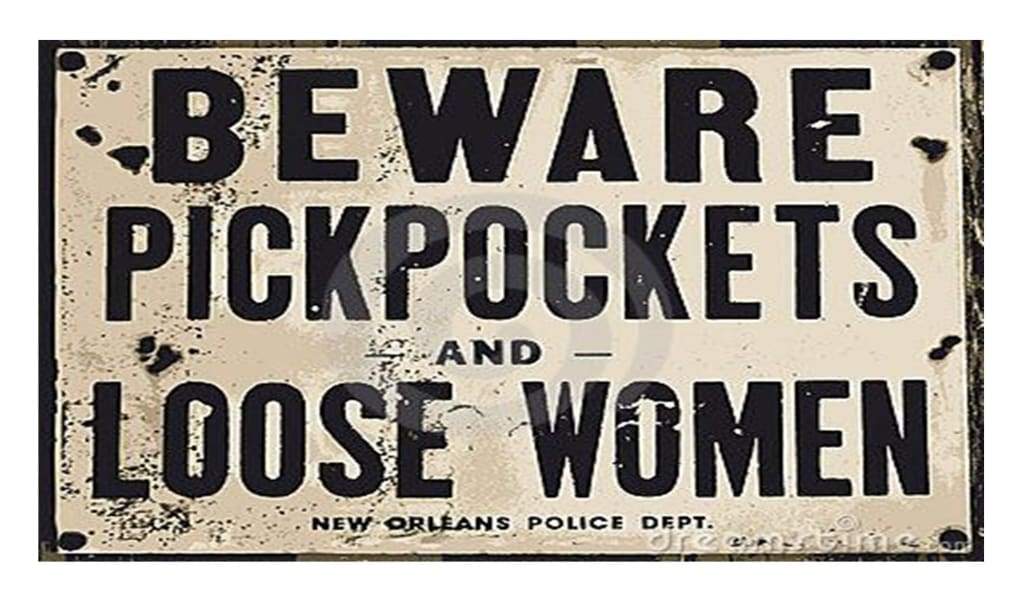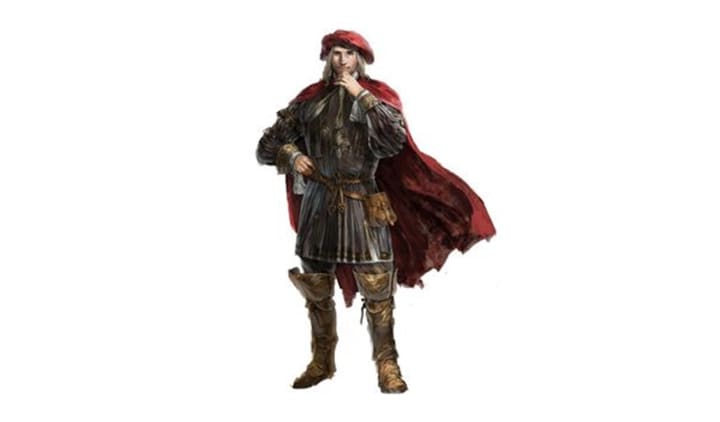The Business and Industry Hardest Hit By COVID-19
The Lost Art of Pickpocketing

With all the talk and effort to help small businesses survive the pandemic, no one is addressing how to bail out the hardest hit business and industry in the world, the pickpocket industry.
Who’s helping the pickpockets? They can’t apply for the SBA PPP Loans. I doubt they deposited the money they stole or filed their taxes with a Schedule C. And if they didn’t file their taxes than they surely didn’t receive any stimulus checks.
They can’t get within 6 ft of you to get their hands on your wallets anymore, completely devastating their businesses and their profits. Where’s their peaceful protest marches? Did they turn to making masks? Is this why we’re receiving so many more, “This is Alexa from Amazon calling,” scam calls? How is this time dishonored business going to get back on their feet?
Answer: Let’s hope they’re not going to get back on their feet.
WHAT IS A PICKPOCKET?
According to Wikipedia, “Pickpocketing is a form of larceny that involves the stealing of money or other valuables from the person or a victim's pocket without them noticing the theft at the time. It may involve considerable dexterity and a knack for misdirection. A thief who works in this manner is known as a pickpocket.”
During the 17th and 18th centuries, the art of pickpocketing was at its height. Significant numbers of men, women and even children made their living in cities such as London and New York pilfering money and jewels from unsuspecting marks.

When I was a child, one of my favorite movies was Oliver Twist where the model of a pickpocket was famously brought to life through the adaptation of Charles Dickens’ classic novel. His rambunctious characters, the Artful Dodger and Fagin, showed us the timing, skill and trickery needed to pull off such heists and harmlessly rob from the rich and give to the poor with a song and dance.

They made it seem like child’s play, a game. After all, pickpocketing has been around since the conception of money. Today, we even have such renowned pickpockets as Bob Arno working with law enforcement agencies around the world utilizing their skills to catch thieves in the act.
HOW DO THEY DO IT?
Back in the 17th and 18th centuries, pockets weren’t sewn to clothes. The pockets were a little purse that people wore close to their body. To snatch these purses, the pickpocket cuts the purse without the mark’s knowledge and makes off with it.

Today they do the same thing except instead of snatching the purse and running, they drive by and grab the person’s items.
Another popular technique is the bump. Sadly, this was used against me as I stood against a Crap table in Las Vegas. The person distracted me with conversation, and I don’t know how they reached into my pocket and got my $20, because my pocket was zipped. But steal from me my little bit of fun money they did. (Sad face.)
Sometimes they organize in a group. While travelling in St. Petersburg, Russia with a group of ice skaters. My friends went out to see the Bolshoi Ballet. As they boarded the underground train, one of them was surrounded by several passengers exiting. They bumped and thumped him throwing him off his guard. And when he went to go pay for his tickets, he realized his wallet was taken.
There’s the method of offering to help you with your luggage or take a picture for you and then they run of with your belongings. A family was visiting Paris and as the aunt sat outside watching everyone’s luggage a person walked by and pointed that she had dropped her key on the opposite side of the luggage.
When the aunt went to look at what the person was describing the person snatched a computer bag that contained two of the party’s passports. They had to pay $600 to get new passports expedited by the US Embassy and purchase a new laptop.
WHAT THIS LOST ART IS COSTING US.
Once a proud criminal tradition, pickpocketing has seen a decline over the years. What with more people carrying plastic instead of cash and transactions being purchased through a smart watch or ring, thieves have had to transition to keep up with the change in technology.
No longer do they have to peer over your shoulder at an ATM machine or install sophisticated card readers at the gas pumps. They’re able to scan your information while walking past you or even abscond with it as you’re sitting in your car ordering something off the internet.
The item that fetches the best snatch is no longer your wallet, it’s your cellphone. You thought you were being coy sliding your phone into your back pocket to catch the eye of a man to your derriere. Instead, you made snagging your phone a “piece of cake.”
Even a disabled iPhone can fetch $200 on the black market. New screens are a particularly desirable part.
As of January 2, 2019, Safes International Scotland reports 400,000 pickpocketing incidents occur per day worldwide. The most highly targeted cities around the world for pickpocketing are Barcelona, Spain; Rome, Italy; Prague, Czech Republic; Madrid, Spain; Paris, France; Florence, Italy; Buenos Aires, Argentina; Amsterdam, Netherlands; Athens, Greece and Hanoi, Vietnam.
Many incidents of pickpocketing go unreported and unsolved because the amount of theft seems insignificant to either the person or the police. And now that pickpocketing has transitioned into other forms of theft the actual cost could be in the billions.
When governments called for shutdowns and people to shelter in place, this left the pickpocketing industry out of business. People could order their merchandise and their food behind shade covered windows on their computers. But how was the computer illiterate pickpocket suppose to feed their family? How were they going to get anyone to be their victim? How were they going to get you to care?
If you enjoyed this article, please consider leaving a heart and a tip. I’m fundraising to support my son’s goal of becoming a race car driver, so all tips go to his racing team JBS Sports as well as donations to help fund youth athletics. Thank you for contributing.







Comments
There are no comments for this story
Be the first to respond and start the conversation.